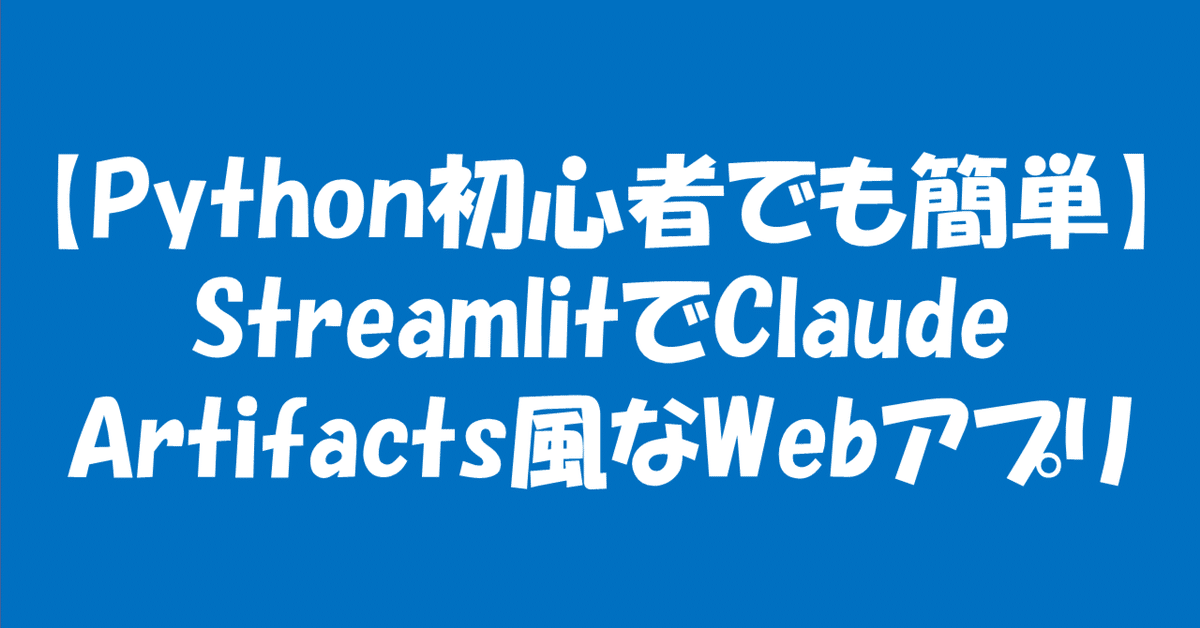
【Python初心者🔰でも簡単】StreamlitでClaude Artifacts風なWebアプリ
はじめに
生成AIのデモアプリ作成に、Streamlitをよく使います。
Pythonだけで簡単にWebアプリが作れますので、フロント技術が不得意なPythonエンジニアは重宝しています。
とはいえ、デザインや機能の制約が多く、かっこいいことは残念ながらできないです。
所詮、Streamlitに期待するのはデモレベルなので、そんなに高望みはしないのですが、
「StreamlitでClaude Artifactsみたいなことはできないかなぁー」
と思い立ったので、Streamlitのcomponents機能を試してみました。
Streamlit Components
見た感じ、よいデザインがならんでました。
これは使えそうです。
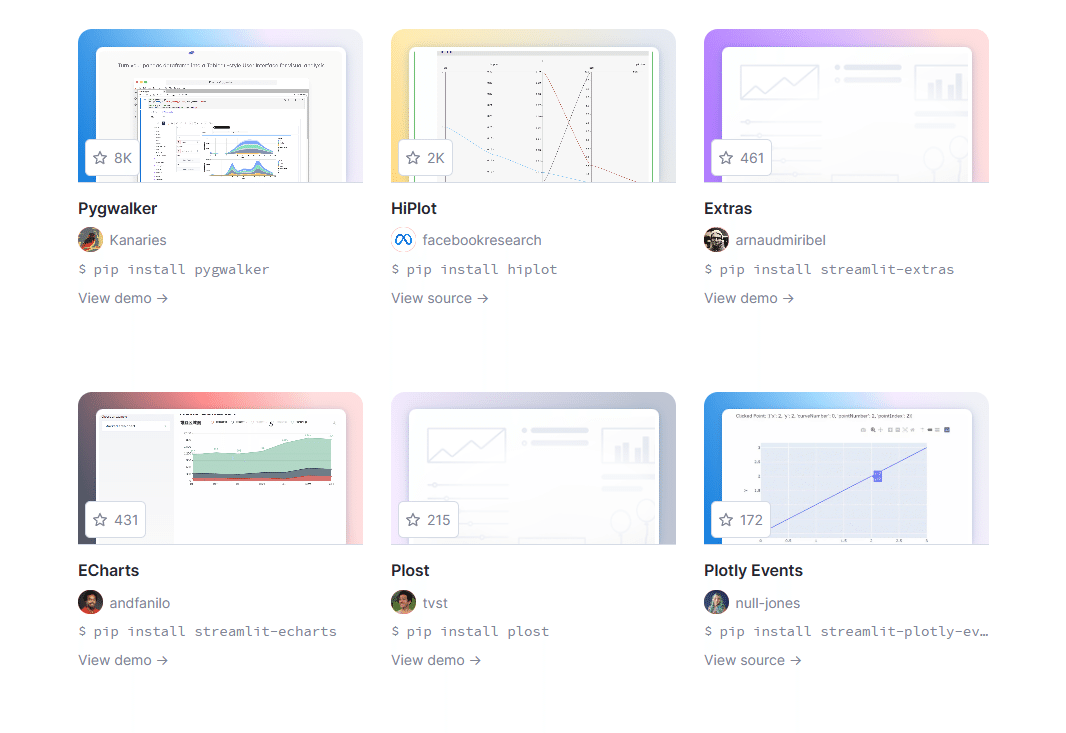
Claude Artifactsとは?
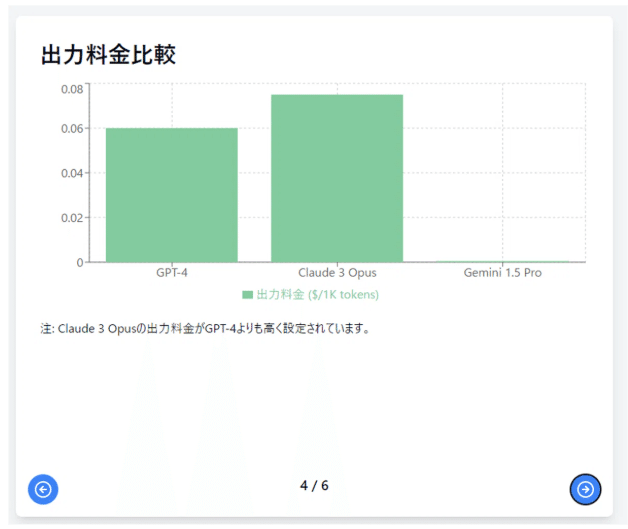
Streamlit + Artifacts
コード全体
from openai import OpenAI
import streamlit as st
import streamlit.components.v1 as components
st.title("チャットアプリ")
client = OpenAI()
model = "gpt-4o-mini"
if prompt := st.chat_input("チャットを入力してください"):
with st.chat_message("user"):
st.markdown(prompt)
with st.chat_message("assistant"):
res = client.chat.completions.create(
model=model,
messages=[
{"role": "user", "content": prompt}
],
)
ans = res.choices[0].message.content
st.write(res.choices[0].message.content)
ans = ans.replace('```html','')
ans = ans.replace('```','')
components.html(
ans,
height=800,
scrolling=True,
)実行
streamlit run ./streamlit.py --server.port=7004チャットWebアプリが立ち上がります。
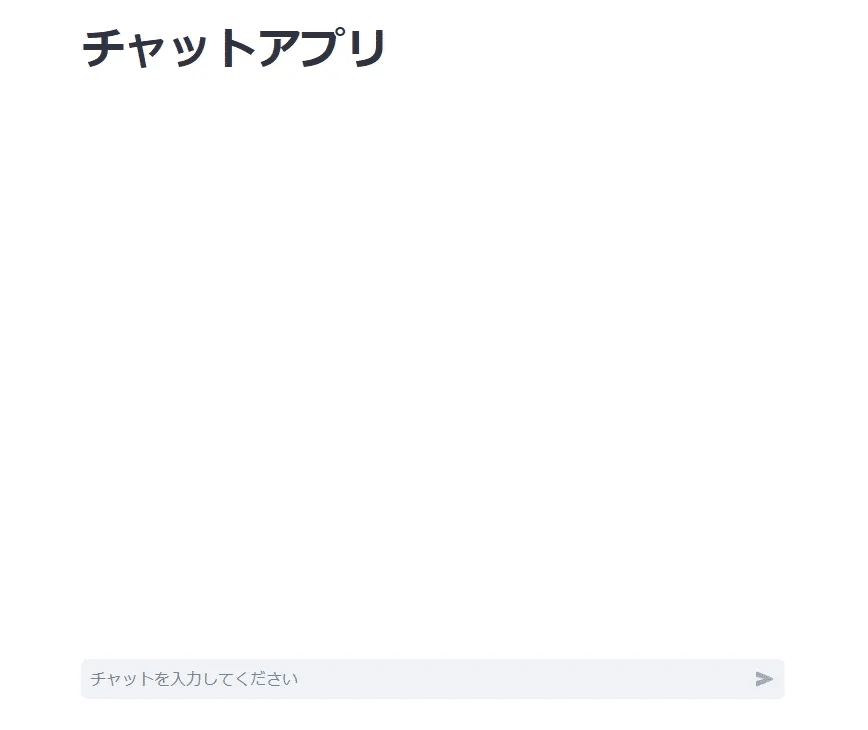
ToDoアプリでも作ってもらいましょう。
チャット入力欄に以下のプロンプトを入力し、実行します。
TodoアプリをHTMLで出力して。HTML文以外は出力しないでください。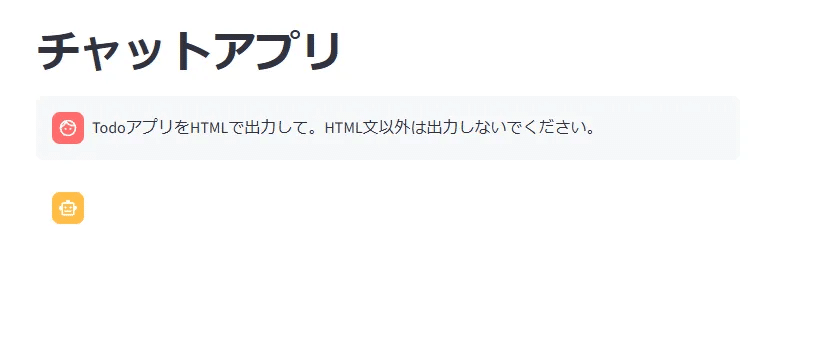
しばらく待つと、Todoアプリが表示されました。
Todoアプリに最低限必要な、「追加」ボタンとタスク入力欄があるようです。
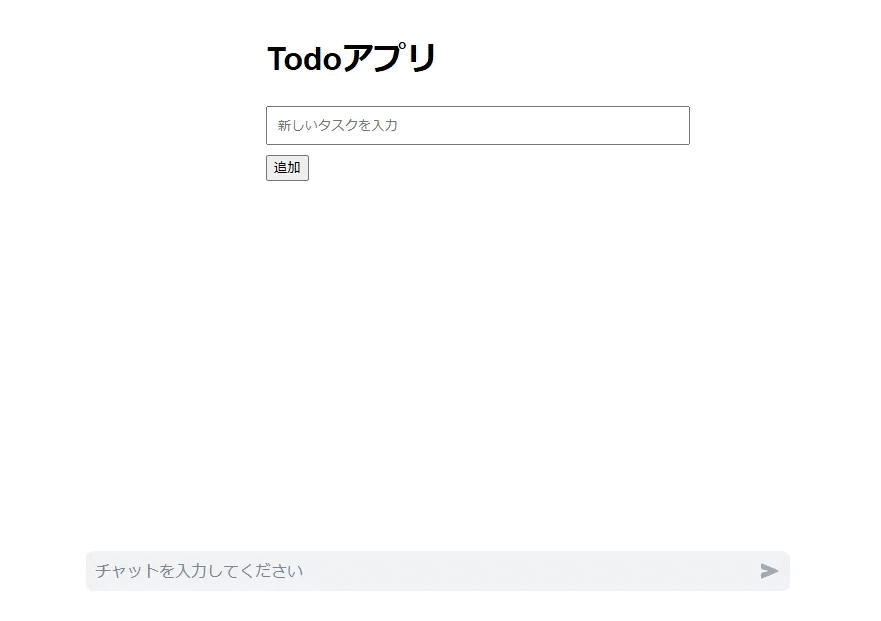
適当にタスクを入力して、「追加」ボタンを押します。
Streamlitの画面でそのまま動きました!
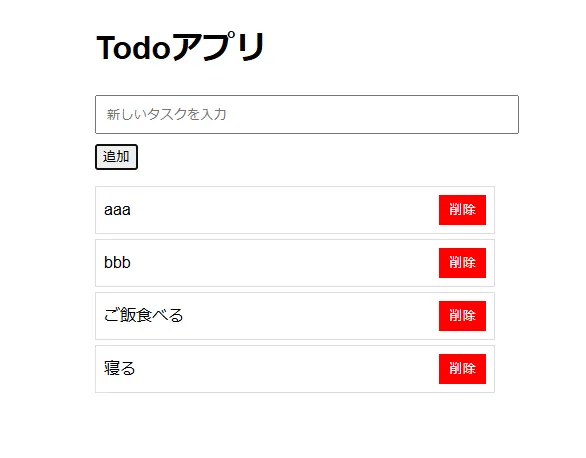
もちろん「削除」ボタンを押すと削除もできます。
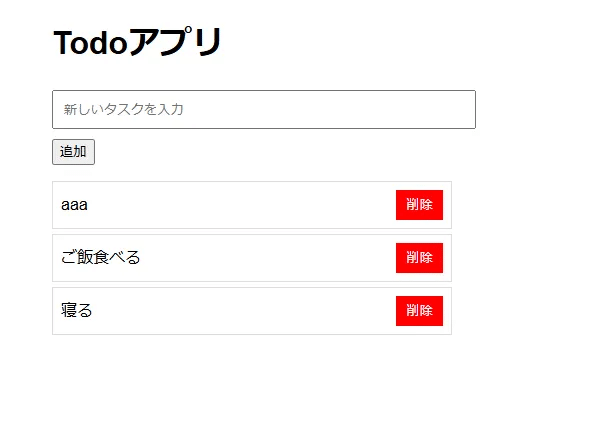
プロンプトを変えて試してみましょう。
シューティングゲームをHTMLとjavascriptで出力して。コード以外の文章は出力しないでください。これも、Streamlitの画面で動きました!
左右で移動して、スペースキーで弾を発射できます。
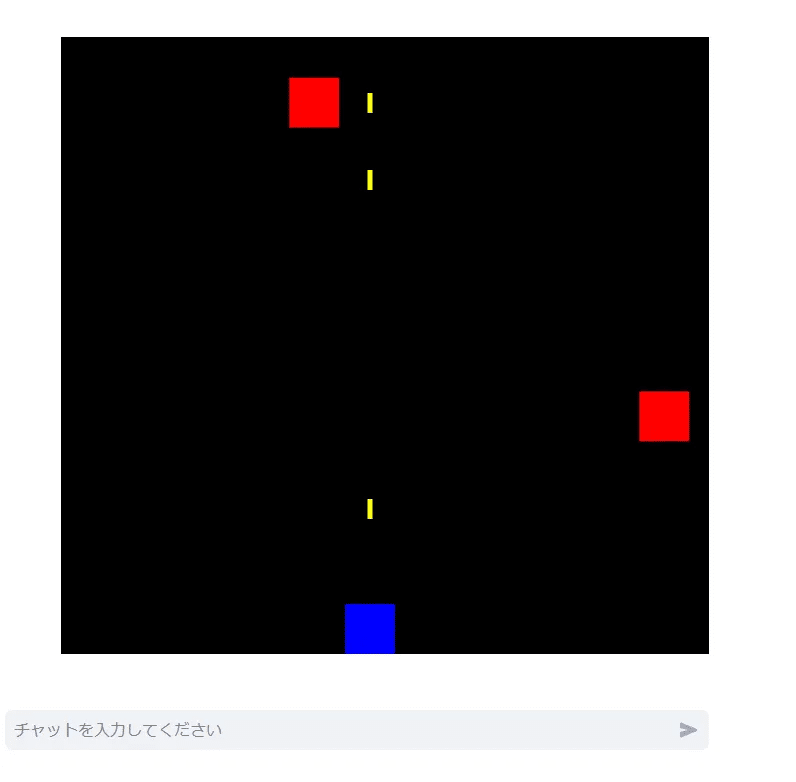
解説
LLMはGPT-4o miniを使いました。最近のモデルであれば何でも大丈夫だと思います。
事前にopenai、streamlitのライブラリはpipコマンド等でインストールしておきます。
チャット入力欄はst.chat_input()を使います。
if prompt := st.chat_input("チャットを入力してください"):
with st.chat_message("user"):
st.markdown(prompt)OpenAIのGPT-4oを利用します。
チャットの回答は「res」に入ります。
res = client.chat.completions.create(
model=model,
messages=[
{"role": "user", "content": prompt}
],
)HTMLだけ抽出するのは、少し面倒そうだったのでLLMのプロンプトで指示しました。
それでもコードブロックの「```HTML」と「```」は出力されてしまいますので、replaceで削っています。
ans = res.choices[0].message.content
st.write(res.choices[0].message.content)
ans = ans.replace('```html','')
ans = ans.replace('```','')HTMLのコードを以下のcomponents.html()で出力します。
components.html(
ans,
height=480,
scrolling=True,
)LLMが出力するHTML例
以下はプロンプトで指示した結果のHTMLの例です。
ChatGPT登場直後の初期gpt-3.5-turboでは、ちょくちょくエラーで動かないケースもあったように思いますが、最近のモデルではこの程度の指示は一切エラーが出なくなりましたね。
<!DOCTYPE html>
<html lang="ja">
<head>
<meta charset="UTF-8">
<meta name="viewport" content="width=device-width, initial-scale=1.0">
<title>シューティングゲーム</title>
<style>
body {
margin: 0;
overflow: hidden;
}
canvas {
background: #000;
display: block;
margin: auto;
}
</style>
</head>
<body>
<canvas id="gameCanvas" width="800" height="600"></canvas>
<script>
const canvas = document.getElementById('gameCanvas');
const context = canvas.getContext('2d');
let player;
let bullets = [];
let enemies = [];
let score = 0;
class Player {
constructor() {
this.x = canvas.width / 2;
this.y = canvas.height - 30;
this.width = 50;
this.height = 30;
this.speed = 5;
this.color = 'lime';
}
draw() {
context.fillStyle = this.color;
context.fillRect(this.x, this.y, this.width, this.height);
}
move(direction) {
if (direction === 'left' && this.x > 0) {
this.x -= this.speed;
} else if (direction === 'right' && this.x < canvas.width - this.width) {
this.x += this.speed;
}
}
}
class Bullet {
constructor(x, y) {
this.x = x;
this.y = y;
this.radius = 5;
this.speed = 7;
}
draw() {
context.fillStyle = 'red';
context.beginPath();
context.arc(this.x, this.y, this.radius, 0, Math.PI * 2);
context.fill();
}
update() {
this.y -= this.speed;
}
}
class Enemy {
constructor() {
this.x = Math.random() * (canvas.width - 50);
this.y = 0;
this.width = 50;
this.height = 30;
this.speed = 2;
}
draw() {
context.fillStyle = 'yellow';
context.fillRect(this.x, this.y, this.width, this.height);
}
update() {
this.y += this.speed;
}
}
function spawnEnemy() {
enemies.push(new Enemy());
}
function handleBullets() {
bullets.forEach((bullet, index) => {
bullet.update();
if (bullet.y < 0) {
bullets.splice(index, 1);
}
});
}
function handleEnemies() {
enemies.forEach((enemy, index) => {
enemy.update();
if (enemy.y > canvas.height) {
enemies.splice(index, 1);
score = Math.max(0, score - 1);
}
});
}
function detectCollisions() {
bullets.forEach((bullet, bIndex) => {
enemies.forEach((enemy, eIndex) => {
if (bullet.x > enemy.x && bullet.x < enemy.x + enemy.width &&
bullet.y > enemy.y && bullet.y < enemy.y + enemy.height) {
bullets.splice(bIndex, 1);
enemies.splice(eIndex, 1);
score++;
}
});
});
}
function drawScore() {
context.fillStyle = 'white';
context.font = '20px Arial';
context.fillText('Score: ' + score, 10, 20);
}
function gameLoop() {
context.clearRect(0, 0, canvas.width, canvas.height);
player.draw();
handleBullets();
handleEnemies();
detectCollisions();
drawScore();
bullets.forEach(bullet => bullet.draw());
enemies.forEach(enemy => enemy.draw());
requestAnimationFrame(gameLoop);
}
window.addEventListener('keydown', (event) => {
if (event.key === 'ArrowLeft') {
player.move('left');
} else if (event.key === 'ArrowRight') {
player.move('right');
} else if (event.key === ' ') {
bullets.push(new Bullet(player.x + player.width / 2, player.y));
}
});
player = new Player();
setInterval(spawnEnemy, 1000);
gameLoop();
</script>
</body>
</html>まとめ
Streamlitでも、生成AIのLLMが出力するHTMLレベルは普通に表示できることはわかりました。
もちろん、ClaudeのArtifactsのようにプレゼン資料だったり、モダンなフロントデザインまでは表示難しそうですが、Artifacts風なデモを少し見せたいときは、そこそこ使えそうです。
